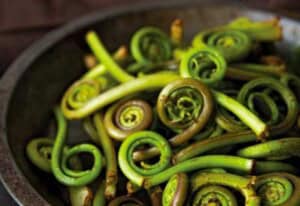“Let food be thy medicine and medicine be thy food.” – Hippocrates
It’s an old question among those interested in the quality of the food we eat. Do we get enough nutrition from the fruits, vegetables, and other foods we consume? Or do we need to supplement our meals with vitamins and minerals?
The answers to this two-part question is both no and yes. No, we don’t get enough nutrition from our foods and yes, we do need to supplement to make up the difference. This thinking has been backed by one simple fact. There’s been a decline in the nutritional value of vegetables and fruits over time.
That was the conclusion of a study (PDF) offered in 2003 that compared the levels of 13 nutrients in 43 different plants in the years 1950 and 1999. Seven of the 13 nutrients — protein, calcium, phosphorus, iron, riboflavin (vitamin B2) and ascorbic acid, a form of vitamin C — showed “statistically reliable declines” over those 50 years (the other seven nutrients showed statistically meaningless changes). The most notable decline, some 38%, was seen in riboflavin, a nutrient critical to the body’s utilization of other nutrients.

BUILD YOUR SOIL
Soil Amendments
Planet Natural offers the organic amendments that your plants need to thrive.
View allGet your gardens off to a great start and keep them productive with premium quality soil amendments. Need advice? Our Soils Blog provides the ideas, information and practical experience you need to get the job done right.
An earlier study from England that compared crops in the 1930s and 1980s found “marked reductions” in mineral content over those years in the 20 fruits and 20 vegetables it surveyed.
Then there’s the loss of phytonutrients, the compounds that fight cancer, heart disease, diabetes, and dementia, among others, something commercially raised produce sorely lacks compared to that in the diets of our foraging ancestors.
Nothing against supplements — your healthy Planet Natural blogger takes his vitamins, and then some, everyday. But shouldn’t we be focused on growing more nutritious fruits and vegetables rather than concentrating on yields and profits?
It’s often thought that depletion of minerals and decline in general farm soil quality after years of heavy chemical fertilization are to blame in nutrient reductions. Various studies make this correlation. But it turns out that the answer to the nutrition-loss question isn’t as simple as that. There’s another factor, one that should cheer growers of heirloom crops and organic gardeners in general.
The 2003 study suggests that as big — or bigger — a factor in nutrient declines as soil depletion is the kinds of fruits and vegetables now being raised. As commercial growers and seed companies have developed and planted varieties for larger yields and easier care, something has been lost. That something is nutrition.
The irony here is that some GMO crops are said to be more nutritious — “bio-fortified” — than their non-genetically engineered counterparts. Where’s the proof?

The trade off between yields (read “profits”) and nutrition loss looks differently to corporate agriculture as it does to home gardeners. In the home garden, nutrition levels don’t have to be sacrificed for yields. Healthy soil means our crops can have good nutrition and yields, especially when we grow heirloom varieties.
Growing the most healthy and nutritious food that we can has always been one of the prime motivators behind home gardening. We do all we can to make sure our soil is healthy, containing everything our plants need and nothing, like pesticides and other chemicals, they don’t. Now we know that growing traditional crops and heirlooms also give us a nutrition edge.
The knee-jerk answer to the nutrition problem, even offered in the above study, is to eat more of the now-less nutritious foods. That seems a less attractive possibility when we’re eating commercial produce of poor quality and indeterminate freshness. Not surprisingly, I find it easier to eat more of the fresh, home-grown or farmers market tomatoes than the ones I pick up at the supermarket. Eating more of those commercial quality tomatoes isn’t an appetizing thought.











